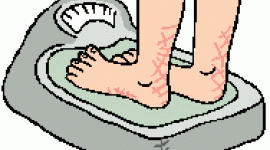On Forgiveness: An Interview with Dr. Sam Menahem
Interview

Dr. Sam Menahem received his Masters degree from Columbia University in 1972 and his Ph.D. from United States International University in 1976. Dr. Menahem is on the faculty of Columbia University as an adjunct assistant professor of psychology. His interest in meditation and healing has been advanced by study with Joyce Goodrich, Ph.D. on the Le Shan methods of meditation. He is the founder of the Center for Psychotherapy and Spiritual Growth in Fort Lee, NJ. He is author of two books: All Your Prayers Are Answered and When Therapy Isn't Enough: The Healing Power of Prayer and Psychotherapy.
Tammie: Dr. Menahem, I want to thank you for taking the time to share your wise and gentle perspective on what I believe is often a very complicated and difficult issue for many people, that of forgiveness.
Dr.Menahem: Thank you, Tammie. It is my pleasure to share my thoughts on this difficult and highly charged topic. It has been my experience that many people have trouble letting go of old grudges, even when they realize it is hurting them more than the other person. Much of my work is centered on helping people to let go and forgive.
Tammie: What are some of the most common reasons we don't forgive ourselves?
Dr. Menahem: Most people are much too hard on themselves. They think they have to do something great just to be OK. They have bought into our cultural madness of competition and success. They feel that they are only as good as what they do and how much money they make from it. If their parents were conditional with their love, critical and controlling, the problem is even worse. Behavioral perfection is then substituted for spontaneity and conformity replaces individuality.
continue story below
Tammie: Why should we forgive our enemies and why is it important?
Dr. Menahem: Most people are sensitive to minor slights or hurts. They feel that they would never be so insensitive and are very critical of others who are insensitive. Sometimes they are upset because the others are getting away with things they couldn't do for either personal or societal reasons. We also dislike people that have qualities we have had to repress. For example, if we have had to repress our anger, we may dislike angry people. We fear that we may be angry like them. When we forgive our enemies, we are accepting a variety of ways of being. We are "letting go" of our fear, anger, guilt and inferiority feelings and promoting love, joy, peace and interdependency. This heals us individually- by freeing us to be kinder and more loving. It also heals interpersonal strife and creates a more peaceful world.
Tammie: Can forgiveness actually help in healing physical pains?
Dr. Menahem: Yes, it can heal us physically. When we are being unforgiving we are tense and stressed, creating powerful hormones that are needed for fight or flight reactions. Since there is no need to fight or flee, these hormones build up and create stress in the body, which can result in pain and physical illness. When we forgive, we relax and the body tends to heal itself naturally.
Tammie: What are the necessary steps we must take in order to forgive?
Dr. Menahem: First, we must accept our angry, fearful or guilty feelings. Second, we must release these feelings willingly. Third, we must affirm our intention to forgive. Fourth, we must take appropriate actions. Finally, we must be thankful for the ability to choose forgiveness and peace.
Tammie: Is there any way we can skip the grieving process?
Dr. Menahem: No. When we lose someone or something dear to us, it hurts and we must grieve. After a while, we can affirm our spiritual values of faith, love, forgiveness and unity and heal the grief.
Tammie: How does prayer and meditation fit into your practice as a psychologist?
Dr. Menahem: I pray for and with my patients. I pray that they heal for the highest good of their soul. I suggest they pray for themselves. I teach them how to pray psychologically-to affirm rather than plead for things. I teach them to meditate-harmonizing their consciousness with divine consciousness. I get them in touch with spiritual feelings of love and peace that come up when fear, hate, guilt and inferiority are released.
Tammie: Could you explain what a self-hypnotic trance is and how this can help your patients?
Dr. Menahem: Self-hypnosis is a sort of selective awareness that arises when the critical, conscious part of the mind is interfering with functioning. By relaxing and turning the criticism off, we are able to release negativity and turn toward peaceful, loving feelings for oneself and others.
Tammie: What is spiritual psychology?
Dr. Menahem: I see people as primarily spiritual beings, temporarily living in a body. The problems usually seen as psychological like fear, hate, guilt and inferiority are actually solved by developing spiritual qualities-faith, love, forgiveness and unity. Spiritual psychology gives people tools to heal their psychological problems by interacting with the endless source of love and peace-God-or as some people prefer the "Higher Power."
Tammie: What are some of the common myths and misunderstandings about spiritual psychology?
Dr. Menahem: First, some people think it forces religion on people. Actually spiritual psychology is non-denominational and non-dogmatic. Second, some people feel that it is of no use to agnostics or atheists. Actually, it helps by releasing toxic feelings, leaving Spiritual FEELINGS like love and peace to arise naturally. Third, some people think it rejects non-spiritual forms of therapy. Actually, it embraces most traditional forms of psychotherapy, while adding metaphysical and mystical methods-like prayer and meditation.
Tammie: How does one grow spiritually, is there a step-by-step process for this?
Dr. Menahem: There is no set formula but the general guidelines call for awareness of problems with thoughts, feelings and behavior, followed by release of these problems and replacement of fear, hate, guilt and inferiority with faith, love, forgiveness and unity with Spirit.
Tammie: What about those folks who complain that prayer doesn't work for them, do you have any suggestions for these folks?
Dr. Menahem: Yes, these folks might want to stop praying to a super-hero God to solve his/her problems externally. Instead, ask for the awareness of your emotional issues and help in resolving them internally. Thus, prayer is a process of improving his/her character, developing spiritual growth instead of material solutions.
Tammie: Your book is entitled, "All Your Prayers Are Answered," do you really mean that or is this just a figure of speech?
continue story below
Dr. Menahem: I am speaking of prayer in the widest possible sense as all thoughts and feelings being "broadcast" into the universe. The Higher Power is not a powerful person responding with punishment or reward. Rather, the thoughts, powered by feelings are "answered" according to the law of cause and effect. These "prayers" are all answered according to this law. Negative thoughts and feelings will produce problems just as surely as positive ones produce abundance and love. All of these answered, once recognized are designed to give us opportunities to move toward positive living. There is always room for improvement.
Tammie: Do you have suggestions for effective prayer-ones that will help in obtaining answers and results that we need versus ones that we want?
Dr. Menahem: First of all practice getting quiet and centered before you pray. This is a meditative state where prayers are clearly sent and answers are clearly heard. Second, pray for character development-greater faith, love, forgiveness and unity, rather than things-money, health, romance. The things, especially health, will come naturally as you relax and surrender to the God within. Third, listen for answers to your questions. Sometimes you will hear inner thoughts. Sometimes you may just be inspired to behave or feel differently. Follow the inner directives that lead to peace and love. Ignore directives that lead to stress, tension and negativity. Fourth, learn to view life as a learning process. Difficulties are not punishments; they are opportunities to move toward spiritual growth.
Tammie: What about those folks who feel that there are just too many people on our planet for God to listen to each person's individual prayers? Please comment.
Dr. Menahem: God is not a busy Santa Claus, rewarding good and punishing bad. Nor is God a super hero saving all damsels in distress. God is not an external being. God dwells within each person and when asked is an unending source of love, inspiration, peace and power. The idea that God is too busy to get I involved with individuals comes from a misunderstanding about what God is and what he can or can't do. God has a much better idea of what we need than we do. Thus, some of the answers to prayers seem like punishments. Actually, everything happens for a reason-our spiritual development.
Tammie: What is the difference between meditation and prayer?
Dr. Menahem: There are four kinds of prayer; petition, intercession, adoration and meditation. When we use the word prayer we think of asking God for something, that is petition. When we meditate we are simply turning everything over to God and quieting the mind, allowing whatever happens to just be. It is totally accepting, peaceful state. It is the highest form of prayer.
Tammie: What is the distinction between disease and illness and between treatment and healing?
Dr. Menahem: Disease is literally a lack of ease in the mind or body. It indicates that we are disturbed, not quiet, that the body is abnormal in feeling or function. Illness is a sate of being out of health or sick-symptoms like pain often appear. Treatment indicates interrupting the disease process by trying to remove or relieve the visible symptoms. Healing is a holistic endeavor designed to eliminate the true causes of the illness or disease. The harmony induced by holistic healing returns a person to a state of health and symptoms disappear.
Tammie: How can prayer help depression? Do you also recommend any dietary supplements? What about prescription medicine?
Dr. Menahem: Depression is caused initially by repressed anger and guilt along with thoughts of hopelessness, weakness and despair. If left untreated biochemical changes occur in the body making psychotherapy much more difficult. Psychotherapy, prayer and medication (herbal or prescription) work very well together. The same is true of anxiety, though the prescription drugs for anxiety are very addictive.
Tammie: Please comment on your beliefs concerning positive thinking versus negative thinking.
Dr. Menahem: All true healing includes a cognitive shift from negative to positive thinking. The trick is that you cannot apply positive thought like a band-aid while keeping negative beliefs. You must imaginatively pull the negative thoughts out by the roots, first. This is done by accepting and releasing the emotion connected with the negative thought; then replacing the negative belief with a positive one.
Tammie: Tell us about the Center For Psychotherapy and Spiritual Growth.
Dr. Menahem: We are a group of psychotherapists and healers who believe that we are primarily spiritual beings, having a human experience. We have six therapists, one chiropractor and one energetic healer. We are located in Fort Lee, New Jersey, Telephone # 201-944-1164.
Tammie: Where can your book be purchased and have you written any other books?
Dr. Menahem: My first book is called, "When Therapy Isn't Enough." The new one is "All Your Prayers Are Answered." Both can be viewed and purchased through my web site, which also contains sample chapters, www.drmenahem.com.
APA Reference
Staff, H.
(2009, January 1). On Forgiveness: An Interview with Dr. Sam Menahem, HealthyPlace. Retrieved
on 2026, March 5 from https://www.healthyplace.com/alternative-mental-health/sageplace/on-forgiveness-an-interview-with-dr-sam-menahem

